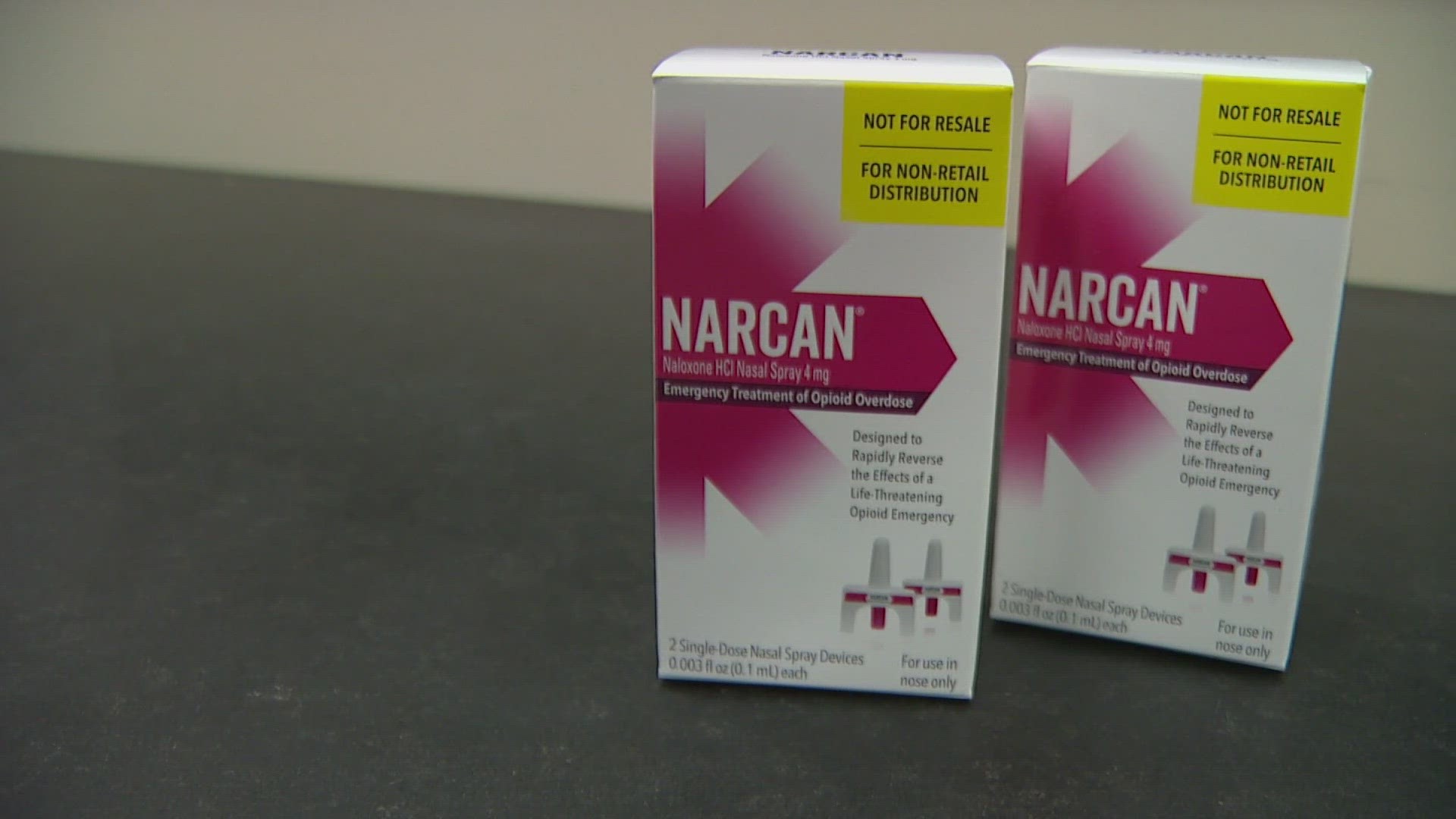SEATTLE — King County officials including Executive Dow Constantine laid out a number of priorities Monday for combatting the impacts of fentanyl and reversing a trend of increasing overdoses.
The strategy aims to increase access to treatment, facilitate the creation of more behavioral health beds, distribute more overdose reversal medication and fentanyl test strips, build a behavioral health workforce and advocate for better wages within it, and address the disproportionate impact of fentanyl on underserved populations. Funding will come from existing resources.
"King County is taking action," Constantine said in a news conference Tuesday. "Treatment works. People can and do recover- but not from a fatal overdose."
County data showed a startling rise in overdose deaths, fueled by fentanyl specifically - both the drug on its own and cut into other drugs.
"Fentanyl has changed the game for us in our work," said Brad Finegood, a strategic advisor with Public Health of Seattle and King County. "It has dramatically increased the lethality 4 to 5 times that of heroin."
The county said it's already been actively working to provide services. In 2023, it added 22 walk-in medication-assisted treatment sites and a mobile methadone van, distributed 45,000 naloxone kits and over 100,000 fentanyl test strips, and provided nearly 1,800 people with substance use disorder residential treatment, the county explained in a statement.
The announced efforts will increase providers in its youth mobile crisis program, add new community navigators to link people at risk of overdose to treatment and harm reduction, facilitate the creation of a sobering center in partnership with the City of Seattle, test more drug samples to reduce accidental poisonings, add apprenticeships to boost the treatment workforce and distribute grants to help disproportionately impacted underserved populations.
Tristan Seikel of the King County Recovery Coalition and Washington Recovery Alliance said many recovery advocates support these efforts. Seikel lauded the emphasis on meeting people where they are, providing harm reduction and finding more ways to provide culturally responsive treatment.
"It's really important we do more not just with ensuring they have access to harm reduction resources like Naloxone and fentanyl testing strips, but also to ensure they have a clear pathway to getting housing and other services that are very key to working through behavioral health challenges," Seikel said.
Officials said the approaches presented today work across party lines.
"We can't get people sober if they're dead," said Reagan Dunn, King County commissioner. "So that harm reduction is important- sometimes it's a political hot potato, I think most reasonable people think it's an important part of the solution. The other is building infrastructure for treatment."
The county said it launched a 24/7 buprenorphine prescribing line. As of Jan. 1, anyone can call 206-289-0287 to talk to a physician and get a prescription for a medication to treat opiate use.
More on the specifics of the county's plans can be found here.

